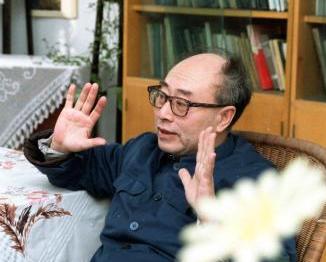| 
Prominent Chinese nuclear physicist Yu Min received the State Supreme Science and Technology Award at a ceremony for China's most prestigious awards in science and technology held in Beijing on January 9 .
President Xi Jinping presented the accolade to Yu, academician of the Chinese Academy of Sciences, at the annual ceremony to honor the most distinguished scientists and research achievements .
Yu, born in north China's Tianjin in 1926, played an integral part in China's first successful hydrogen bomb test in the 1960s. He took on an important role in the miniaturization of nuclear weapons, technological breakthroughs in the neutron bomb, and filled a national void in the theory of the atomic nucleus.
Yu's life came together with the bomb on January 12, 1961 when he was assigned to research hydrogen bomb theories.
"I accepted without hesitation," Yu told Xinhua News Agency. The scientist, who was then pursuing theoretical studies on the atomic nucleus, shifted his focus and started on a covert career spanning nearly 28 years. It was not until 1988, when the mission was fully declassified, that his wife discovered what he had really been doing all those years.
A born leader
In 1965 Yu spearheaded a squadron of scientists. Cai Zhaohui, a team member, said during the "battle" to develop the hydrogen bomb, which lasted over 100 days, Yu was submerged in stacks of computer paper tape as he led the team over technological hurdles. At that time, there was only one computer in China that could perform 10,000 calculations per second.
"Yu led us as we mapped out the design of the entire bomb, through theories to materials and prototypes," Cai said. "Without a nuclear deterrent, there could be no true independence for China."
But Yu rejected the title "father of the hydrogen bomb," saying systematic work demanded equal perspiration from everyone involved.
Following their success with the H-bomb, Yu and his team worked on the miniaturization of nuclear weapons and on the neutron bomb. Yu was acclaimed as having filled a gap in China's nuclear theories for his structure model of the atomic nucleus. Reminiscing, he said, "No one's name is indelible in history, but it is quite comforting to know that one has contributed to the motherland's prosperity."
Yu graduated from Peking University and never studied overseas. He also had very few chances to communicate with foreign experts, according to the website people.com.cn. But his famous theoretical studies of nuclear energy, which led to the hydrogen bomb breakthrough, are still as important today as they were back then.
Honor roll
A total of 24 scientists have received the award in previous years, including the master of hybrid rice Yuan Longping. In addition to Yu, 318 cutting-edge scientific research projects - including network computing, methods for converting methanol to olefins, and the Tianhe-1 supercomputer - received national science awards for the year 2014, according to the State Council.
The State Science and Technology Awards comprise four more awards that recognize individuals and organizations for their contribution: the State Natural Science Award, State Technological Invention Award, National Science and Technology Progress Award, and International Scientific and Technological Cooperation Award of the People's Republic of China. The international award was handed to the University of Texas MD Anderson Cancer Center and seven scientists from Russia, Canada and the United States.
Tech Bytes
» China's deep-sea manned submersible Jiaolong carried a high-definition camera to capture shots of a hydrothermal area in the Indian Ocean in January. The camera recorded an hour's video of seabed scenes. A three-member China Central Television team is making a documentary on the Jiaolong's four-month expedition in the southwest Indian Ocean. The camera recorded mussels, corals and spiral shells on the seabed as well as Jiaolong taking deep sea water samples. |